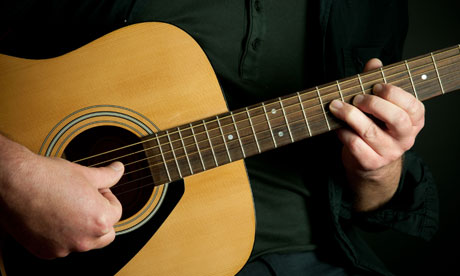
As the cuts to arts funding continue to bite ever deeper, increasing numbers of musicians are now championing co-ops as a way of ensuring their own long-term survival.
In a landmark move earlier this summer, the Musicians' Union joined Co-operatives UK, the national trade body that supports co-ops across the country.
"We're promoting the co-operative model to all our members as a possible way forward to protect their interests and promote better working arrangements in the current challenging economic times," says Fran Hanley from the MU which supports over 30,000 performers, composers and music teachers.
The MU has noted with alarm the growing trend by local authority music services to downgrade employment protection and contract peripatetic music teachers as self employed or worse, on zero hours contracts.
"Such contracts minimise teachers' pay and pensions and withdraws protection from unfair dismissal," says Hanley.
"Consequently teachers have less incentive to commit to one local music provider leading to ever greater fragmentation, something which is confusing for both parents and schools."
"We believe that as more and more local authorities outsource their music services the co-operative model represents a real alternative to some of the employment changes being imposed on our members."
There are currently just under 20 registered musician co-ops, however according to Nick Molyneux from Co-operatives UK, this figure is likely to be somewhat inaccurate:
"Our feeling is that there are many more musicians out there that operate as co-operatives but who are either not incorporated or do not self-identify as co-operatives as it will just be the natural way that they organise themselves," explains Molyneux.
"The work that we are currently doing with the Musicians' Union will help to clarify numbers."
One of the most recent musician co-ops to launch is Sinfonia Musicisti, a 40 piece orchestra which became incorporated as an industrial provident society in September 2012.
"I've been involved with a number of music groups which have collapsed due to financial difficulties brought on a by the worsening funding environment for the arts," explains Mark Kesel who was one of the main drivers behind the launch of Sinfonia Musicisti.
"The aim of the co-op is that our players will share the benefits and risks of the business and it is this equitable approach that allows us to offer an affordable programme of music from a professional orchestra."
Kesel, who is a trumpet player, believes that the sense of shared ownership which is part and parcel of being a co-op member is crucial to resolving many of the problems associated with the often precarious world of the professional musician:
"All too often the problem is that there's a lack of communication between musicians and the management running the orchestra. The result is that when times are tough musicians have no sense of ownership and are only interested in getting their fee, which often they fail to get."
"On the other hand a shared sense of ownership, which is what you get from a co-op, means that the musicians will be prepared to see the orchestra through when times get tough because they'll be incentivised to ensure that the co-op survives," says Kesel.
Key to the launch of Sinfonia Musicisti was support from both the Artists Recording Companyand the University of Northampton who are currently exploring new ways of funding classical music with the aim of making it more accessible to the widest possible audience.
Whilst performing musicians invariably grab the limelight, the reality is that around two thirds of the MU's members earn their living from working in education as music teachers.
One of the oldest running music teacher co-ops is Swindon Music Co-operative which was launched in 1998 following Swindon Borough Council's decision to close down its instrumental teaching service.
David Barnard, who at the time was Swindon Borough's director of music spoke to the MU's membership magazine The Musician earlier this summer about how the co-op came about:
"We needed to find a solution that retained a sense of unity and common purpose while reducing the cost of provision and a co-op was an ideal solution."
Today as a partner of Swindon Music Education Partnership, Swindon Music Co-operative is the main provider of instrumental and vocal tuition in over 70 local schools with over 50 self-employed specialist music teachers.
Secretary general of Co-operatives UK Ed Mayo believes that there's an untapped opportunity for more musician co-ops:
"There are already some successes such as the Swindon Music Co-operative but there is so much more potential for growth and to support even more musicians," says Mayo.
"Co-operatives are particularly relevant for groups of self-employed people such as music teachers or musicians who could benefit from collaborating, coming together to market themselves and protecting their interests."
This content is brought to you by Guardian Professional. To join the social enterprise network, click here.

